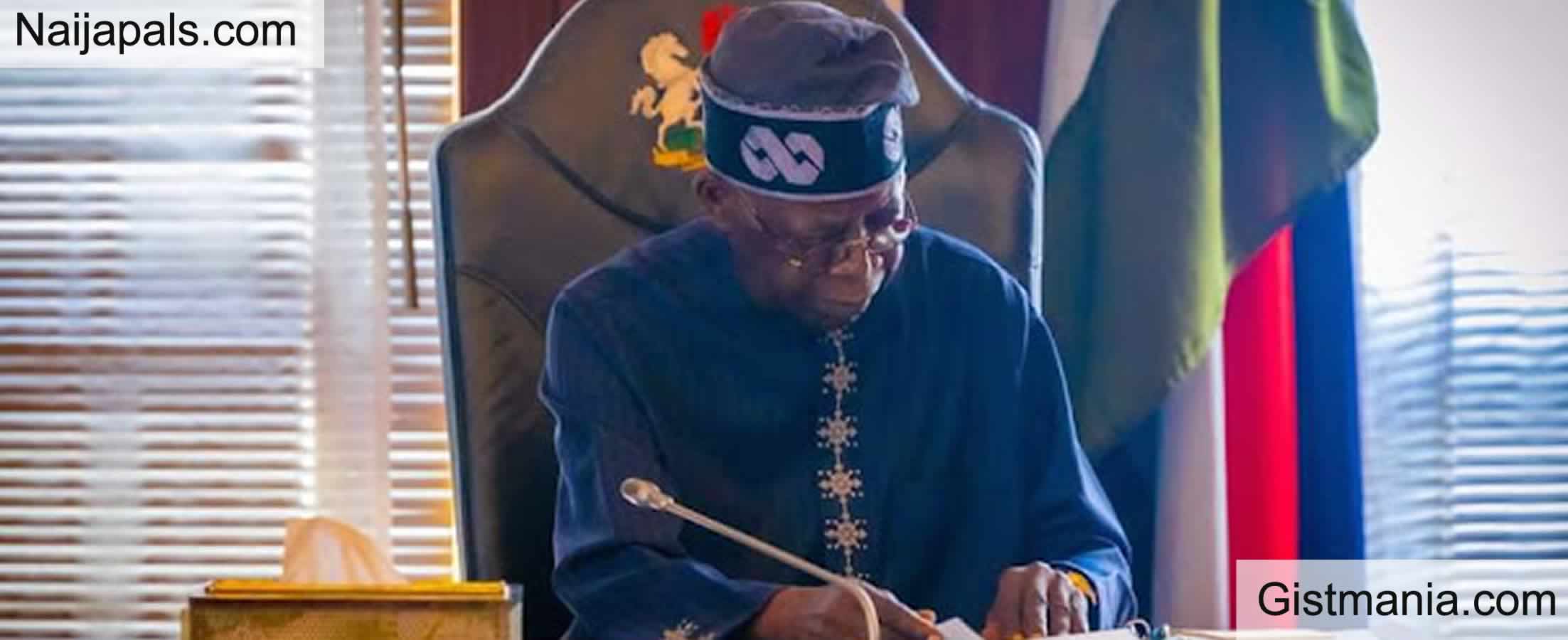
There are mixed feelings as President Bola Tinubu and 18 governors roll out the drums today to mark their first anniversary in office. The governors, who assumed office on May 29, 2023, alongside the President are: Alex Otti (Abia), Umo Eno (Akwa Ibom), Hyacinth Alia (Benue), Bassey Otu (Cross River), Sheriff Oborevwori (Delta) and Francis Nwifuru (Ebonyi).
Others are: Peter Mbah (Enugu), Umar Namadi (Jigawa), Uba Sani (Kaduna), Abba Yusuf (Kano), Dikko Radda (Katsina), Nasir Idris (Kebbi), Umar Bago (Niger), Caleb Mutfwang (Plateau), Siminalayi Fubara (Rivers), Ahmad Aliyu (Sokoto), Kefas Agbu (Taraba) and Dauda Lawal (Zamfara).
The first anniversary is coming at a time, when Nigerians are lamenting the high cost of living, which seems to have given energy to opposition to most policies and programmes of the Tinubu-led All Progressives Congress (APC) Federal Government.
President Tinubu had made several promises in the course of interacting with different stakeholders ahead of the 2023 elections although many faulted him and the other presidential candidates for not dwelling on the specifics of how they will go about the policies and programmes in their respective manifestos.
Tinubu’s policy document with the theme: “Renewed Hope: Action Plan for a Better Nigeria,” offered directions on his plans for security, economy and foreign policy. On his plans for the economy, Tinubu said he will engage the private sector to drive economic development across the country.
He also promised to phase out fuel subsidies (which he did on his inauguration day) as well as to accelerate full implementation of the Petroleum Industry Act and implement additional favourable policies to attract investment in deep water assets within six months.
He also pledged to tackle the forex crisis impeding the economy. On agriculture, he said his administration will place emphasis on the use of technology to improve the agricultural sector for better production and contribution to the nation’s economy.
On how he would tackle insecurity that is ravaging almost all parts of the country, Tinubu said his administration will establish a highly trained and disciplined anti-terrorist squad to keep Nigeria safe. However, one year down the line, Nigerians are still waiting for things to be turned around for good.
The President ended the fuel subsidy regime on his first day in office and later floated the naira, but both policies are yet to achieve desired goals given the hardship in the land. Although many will not claim ignorance of the state of the economy at Muhammadu Buhari’s exit, patience seems to be running out. With inflation rate at 33.7 per cent, most Nigerians are finding it increasingly hard to meet their basic needs.
Besides the hardship over high cost of living, Nigerians are also grappling with security challenges and the situation has assumed an alarming dimension as emboldened criminal elements have upscale their attacks on citizens. According to the 2023 Nigeria Security Report by Beacon Consulting, no fewer than 5,060 Nigerians were killed, with 2,263 others abducted between May and December 2023, when the report was released.
The states that are worst hit in the renewed killings are Plateau and Benue. The five states of the South-East are not left out as several lives have been lost and property worth billions of naira destroyed due to the Mondays’ stay-at home directive ordered by the Indigenous People of Biafra (IPOB).
The killings are despite Tinubu’s promise in his inaugural speech on May 29, 2023, to “defend the nation from terror and all forms of criminality that threaten the peace and stability of our country.” Whereas some analysts and officials of the Tinubu administration are of the view that it is too early to assess the government and have persistently appealed for time to work out measures to alleviate the sufferings of the citizenry, the opposition political parties and critics of the administration keep reminding the President of his promise to build on Buhari’s legacy.
Interestingly, some aides of the President are the ones blaming the immediate past administration for the current economic crunch even when the government they succeeded was run by their party – APC. The blame game, notwithstanding, many insist that there cannot be any justification for poor performance.
The belief is that Tinubu, being a major stakeholder in the APC and the Buhari administration, was aware of the situation on ground before he made the promise of a better life for the citizenry. Despite mounting criticisms of the Tinubu administration, the leadership of the ruling APC and supporters of the President remain unwavering in their belief that his capacity to rebuild Nigeria out is not in doubt.
No doubt, President Tinubu has continued to reiterate his determination to bring the present suffering of Nigerians to an end, but it is incontestable that the deterioration of every government begins with the decay of the principle on which it was founded.
| Posted: at | |





 TRENDING GISTS
TRENDING GISTS  Tension Rise Again In Plateau As Bandits Attack Market, Kidnap Five And Steal Goods
Tension Rise Again In Plateau As Bandits Attack Market, Kidnap Five And Steal Goods Portable Reveals He Made N70M in Three Days After Fight With Speed Darlington (Video)
Portable Reveals He Made N70M in Three Days After Fight With Speed Darlington (Video) VIDEO: Man Caught While Waiting For a Minor he Had Solicited S£x From Online
VIDEO: Man Caught While Waiting For a Minor he Had Solicited S£x From Online Rapper, Phyno Unveils His Daughter, Shares Adorable Video to Mark Her Second Birthday
Rapper, Phyno Unveils His Daughter, Shares Adorable Video to Mark Her Second Birthday Ex Madrid Player, Xabi Alonso Seals Managerial Move To Real Madrid As Ancelotti Bows Out
Ex Madrid Player, Xabi Alonso Seals Managerial Move To Real Madrid As Ancelotti Bows Out